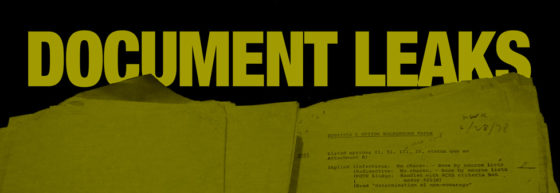In the mainstream media, the dominant voice of “environmentalism” has become that of the “neo-green” or “Anthropocene booster”. You will hear this voice everywhere promoting big science, big technology, big money and top-down “solutions” to everything from global warming to poverty and ill-health. While it is loud and pervasive, and to some persuasive, it is not a new voice nor is it a wise one. It is “business as usual” dressed up as kind and caring and green. It promotes partnerships between non-profits and industry and market-based solutions. It describes proponents of wild land conservation and ecology-based solutions as “luddites” and “impractical.” It paints a world where all of nature is turned into “resources” that humans must “manage” and it transforms wilderness and ecology into “eco-system services.” It is a mindset that will ensure the catastrophic climate, ecological and human disasters that it claims only it has the power to avert. Understanding the neo-green movement is necessary to resist it.
Understanding the Neo-Greens: A quick guide to some major players and their playbook is a table that summarizes this techno-optimist and corporate-inspired movement.
References used to compile the table: Keeping the Wild: Against the Domestication of Earth. Ed. George Wuerthner. Island Press, 2014; Crist, Eileen. “On the poverty of our nomenclature.” Environmental Humanities 3 (2013):129-47; Kingsnorth, Paul. “The New Environmentalism: Where Men Must Act as ‘gods’ to save the Planet.” The Guardian 1 Aug. 2012.
See also:
Stephen Corry discusses historic conservation’s ties with eugenics and decimation of native peoples and how much of neo-conservation’s efforts are actually land grabs: The Colonial Origins of Conservation: The Disturbing History Behind US National Parks.
N. Hettinger, “Valuing Naturalness in the ‘Anthropocene’: Now More than Ever” in Keeping the Wild: Against the Domestication of Earth, ed. G. Wuerthner, E. Crist, and T. Butler (Washington, D.C.: Island Press, 2014), 174–179.
C. Meine, “What’s So New about the ‘New Conservation’?,” in Keeping the Wild: Against the Domestication of Earth, ed. G. Wuerthner, E. Crist, and T. Butler (Washington, D.C.: Island Press, 2014), 45–54.
Stirling, Andy. “The greens are far from ‘finished.’” The Guardian 30 July 2013.
Latham, Jonathan. “Way Beyond Greenwashing Have Corporations Captured Big Conservation?” Independent Science News 7 Feb. 2012
Imhoff, Dan, ed. The Cafo Reader: the tragedy of industrial animal factories. Berkeley, CA, USA: Watershed Media, 2010.
